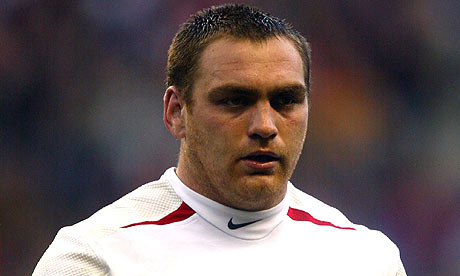
England face the difficult task of trying to defeat New Zealand at Twickenham this weekend but, according to three men who have helped conquer the All Blacks, the mission is not impossible.
Michael Foley
Australia 34-19 NZ
Sydney July 2008
Australia's forwards coach
England have a good general at No10, a good line-out and a good counter-attacking game, but you must match New Zealand for physicality and speed.
You have to be at the contest early and work really hard. You can't just go in with a neat little plan and think that it will all fall into place. Emotionally the guys will have to be incredibly up and ready for the contest.
When you look at the Kiwis you notice great athleticism and great skill but you also have to identify a shrewd leader in Richie McCaw and an outstanding general in Dan Carter. They are the fundamental strengths of the team and you can't play New Zealand without understanding the threat of those players and doing something about it.
Carter has an incredible knack of identifying and playing space whether it's in front of him or behind the line. McCaw is both constructive and destructive and you have to understand him if you want to reduce the impact he has around the tackle area.
The selection of Nick Kennedy and Toby Flood suggests that England are going to play a strong positional game — something they have done well in the past — and pressure New Zealand's lineout. But Carter will kick for space, so it's vital that the defensive alignment is such that they can use that kicked-back ball well.
Dave Ellis
NZ 18-20 France
June 2007 Cardiff
Defence coach for France
The All Blacks can be a bit like a machine but in the World Cup we came up with something that stopped the machine in probably the best game of the tournament.
Over the years New Zealand had hurt us with their off-loading game and, because they committed only a limited number of players to the ruck, ability to go wide quickly. I worked briefly with them in 2005 and learned a few things which I stored away before bringing out in preparation for this match. Pared to the bones, the idea was to double tackle the ball carrier — one going low, the other for the ball.
New Zealand liked to play with two-man pods, three-man when the scrum-half Byron Kelleher joined the ruck, but by stopping the off-loading, we forced them to commit more men. The result was that they got narrower and narrower and had to resort to pick-and-go which made defending easier. The flanker Thierry Dusautoir made a remarkable 39 tackles.
Trevor Woodman
England 31-28 NZ
November 2002, Twickenham
Played prop in England's home win
This was my first start for England, so to win against the All Blacks at Twickenham was quite something. The big memory is the pace of the game — after 30 minutes my lungs were burning — as well as the lesson that when there are points to be had against New Zealand, you take them and keep the scoreboard ticking over.
You must also have the confidence that you are better than the guy in front of you. If you go in thinking you're not as good as them, then the game is lost already — they'll pounce on you.
Any All Black side is a good side. Once they get behind you it's hard to stop them and you just leak points. You get very few opportunities to score against them but the team we had contained some world class individuals, like Martin Johnson and Lawrence Dallaglio, and 2002 was probably part of the process that led to the World Cup win in Australia in 2003. The following summer we went 12 games winning against the southern hemisphere sides.

